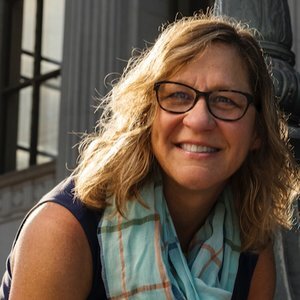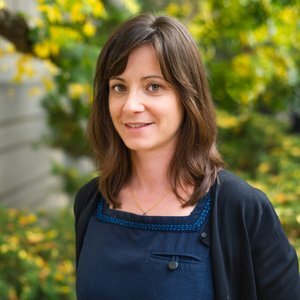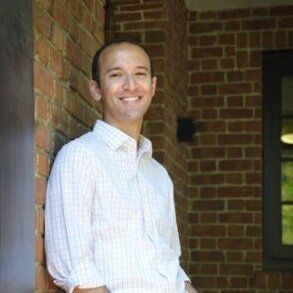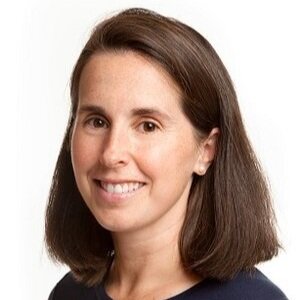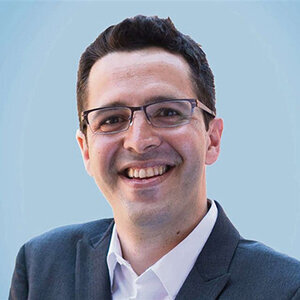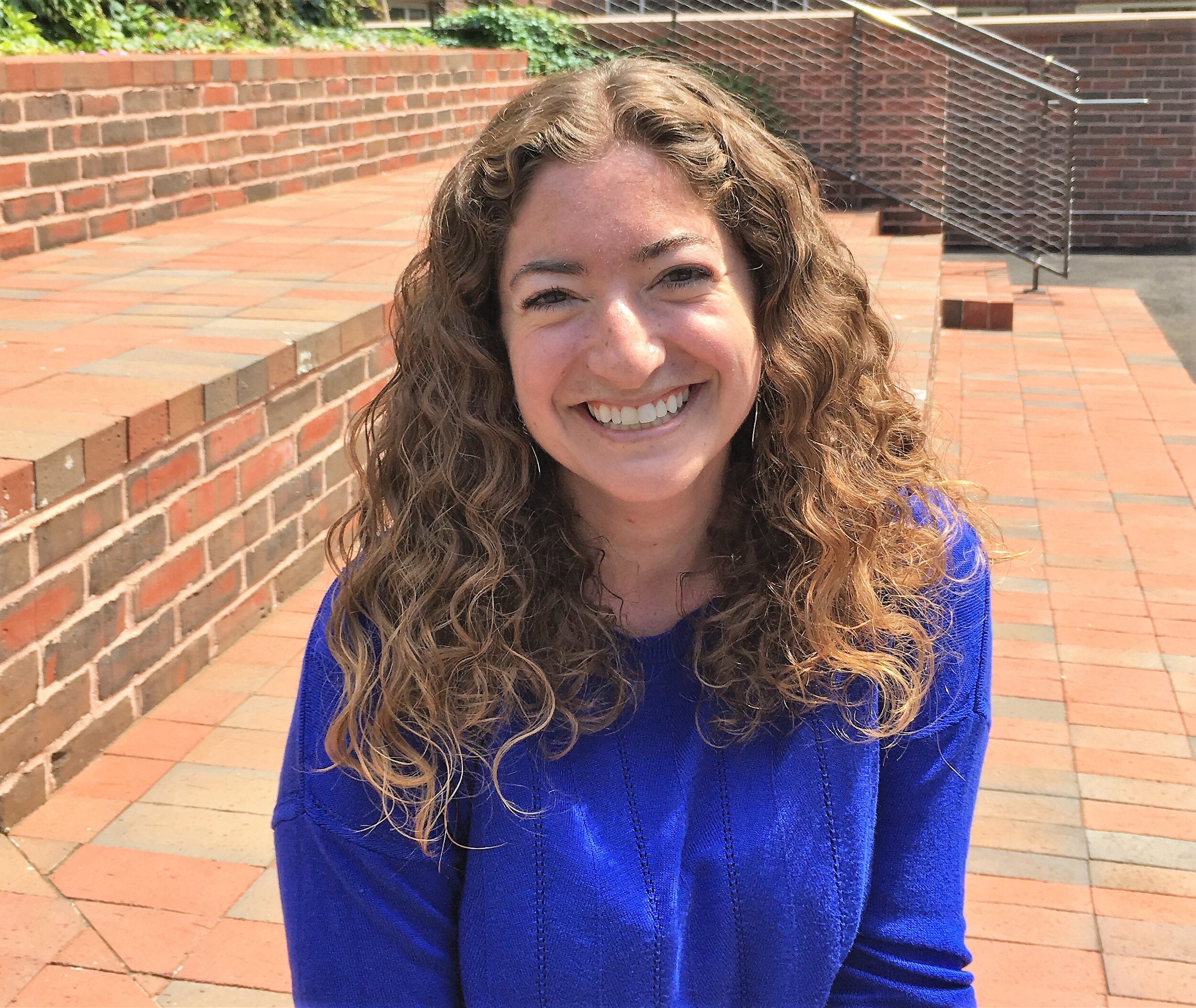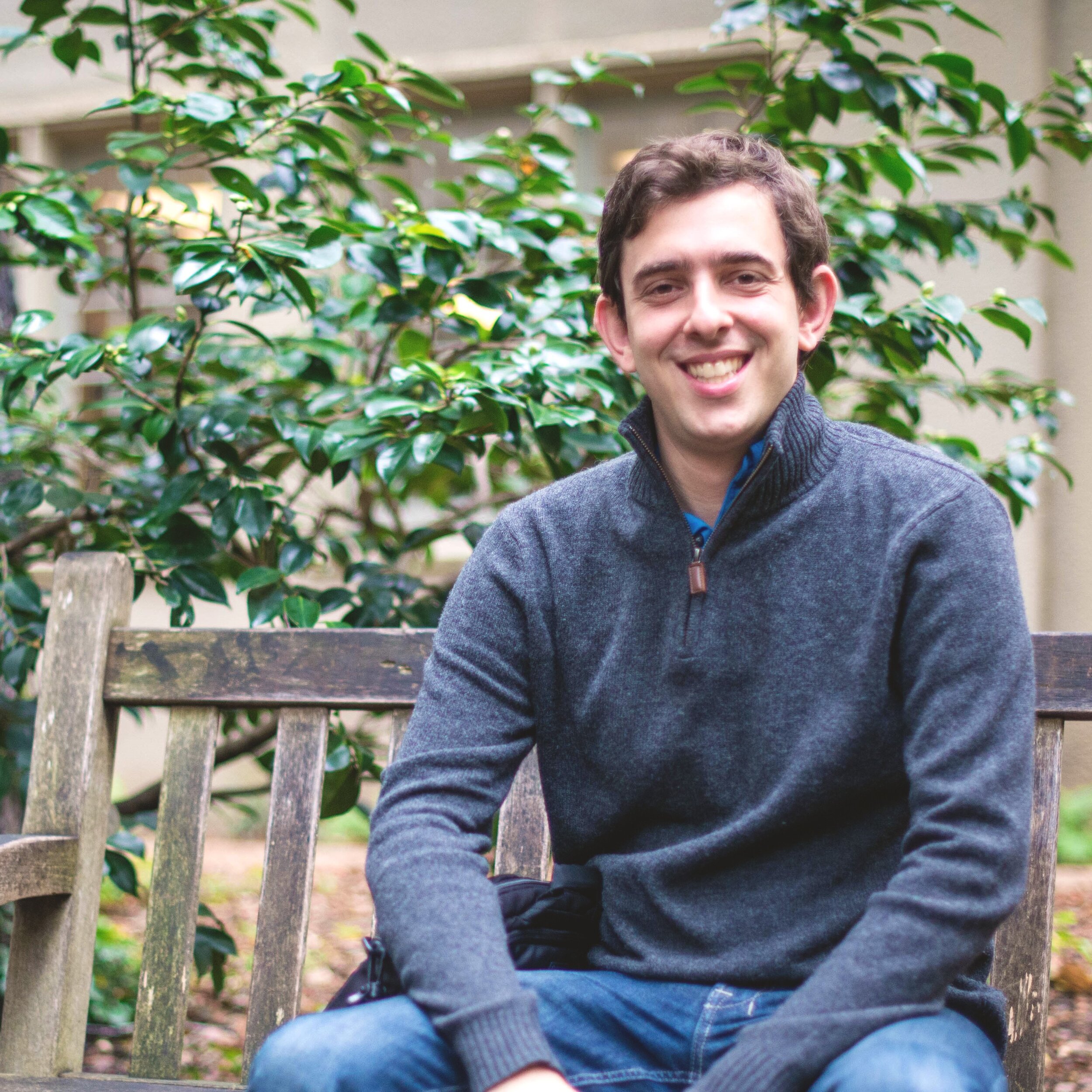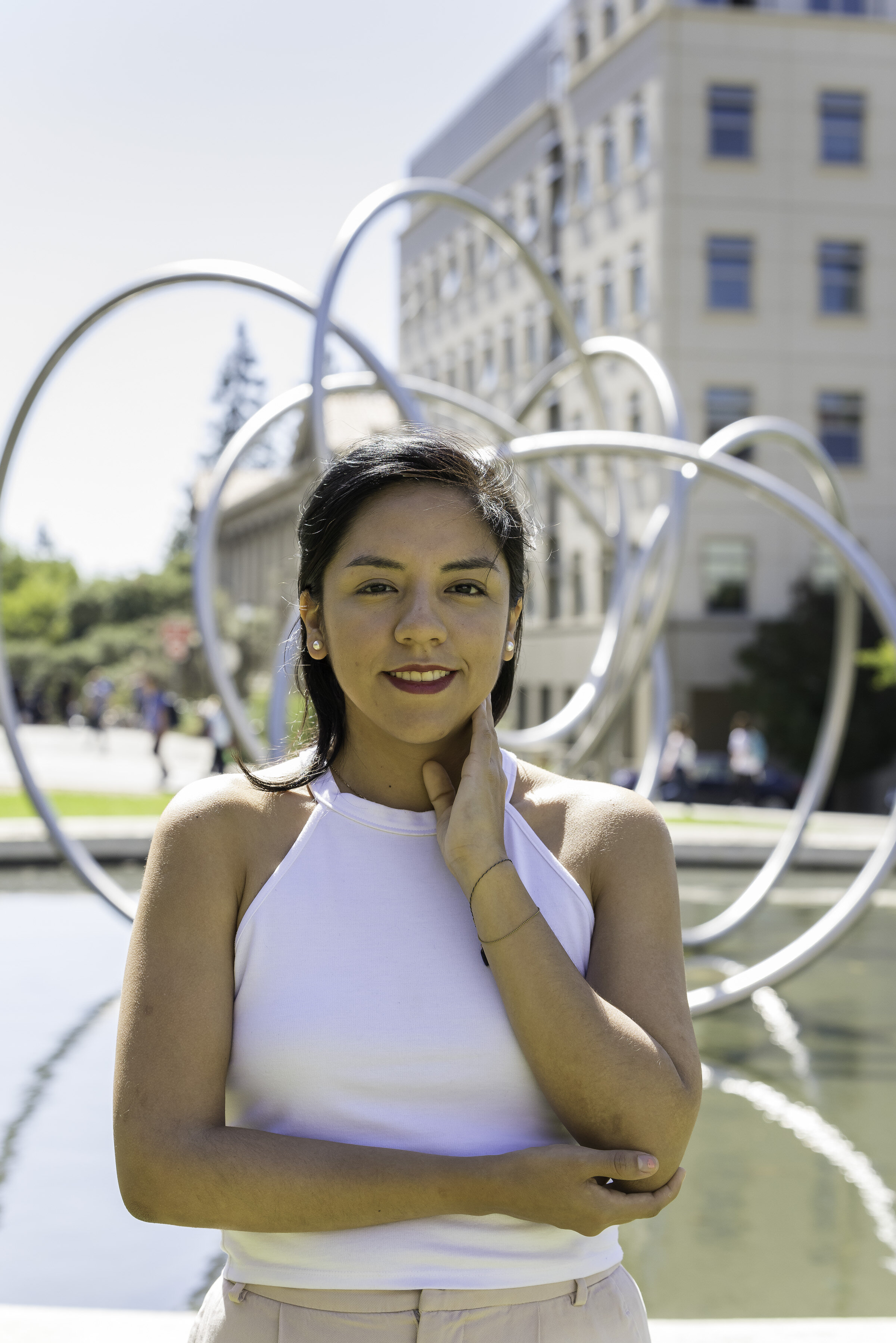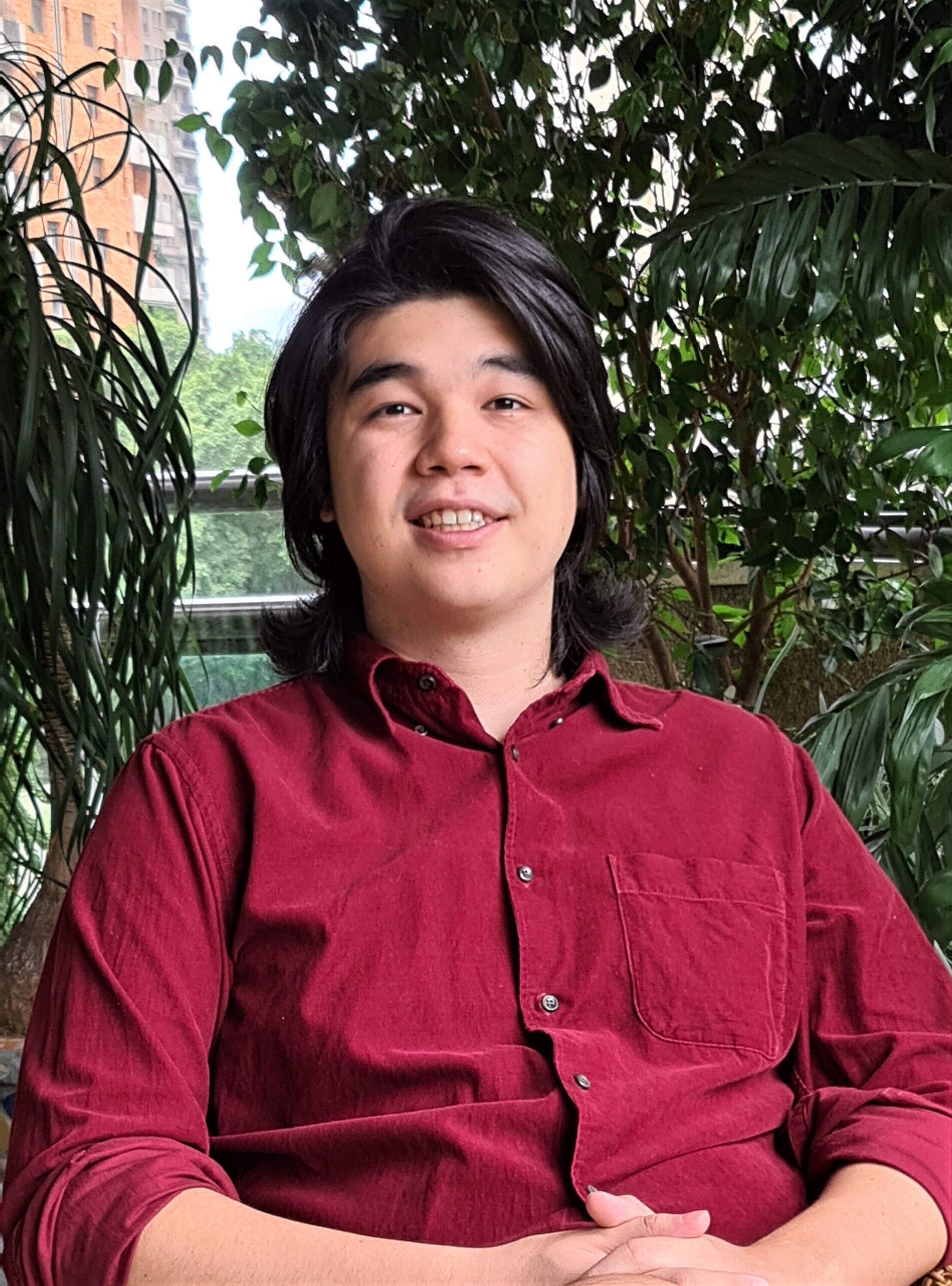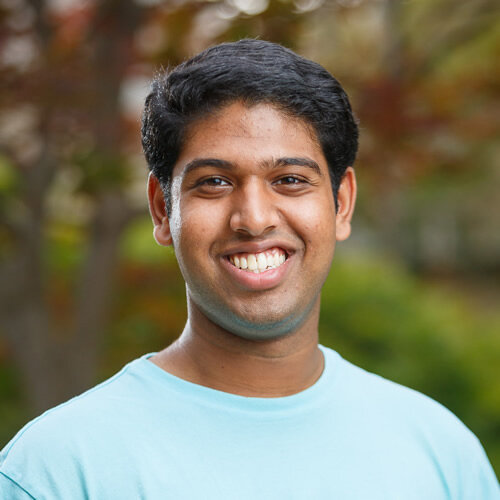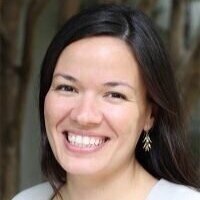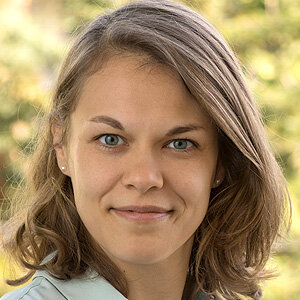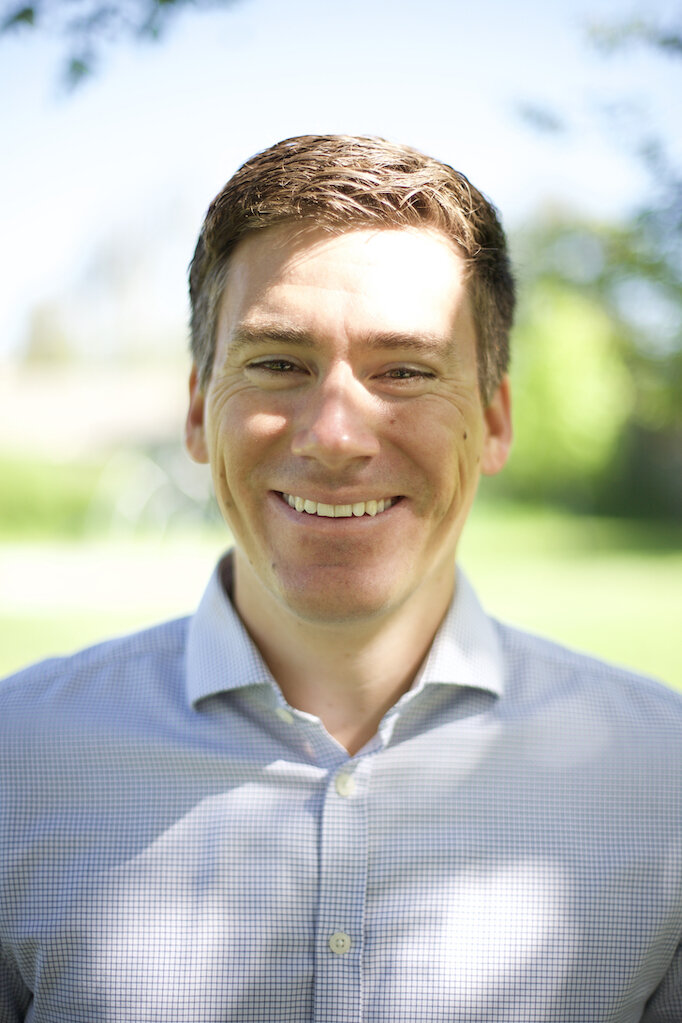O-Lab 2020 Year in Review
Between the pandemic, wildfires, the election, and demonstrations for racial justice, 2020 has been a year of extraordinary challenges, sadness, and hope. Like everyone, all of us at the Opportunity Lab have struggled to navigate the political and social anxiety, the new remote work and learning arrangements, and uncertainty about the strength of our institutions and the long-term health of our climate.
At the same time, we also recognize that we have been enormously fortunate to have stable work and to have been spared many of the economic hardships and health risks faced by so many essential workers in our communities, disproportionately low-income people and people of color. We are profoundly grateful to them, and we do our work in large part to create a more fair, equitable, and inclusive economy that will better promote economic security and opportunity for all of us, in good times and in bad.
Despite the challenges this year, we are proud of the work our faculty and students produced, and the profound impact this work has had on economic and social policy, on climate and energy policy, and on research agendas in a range of fields. Take a look below at some of the work we’ve produced over the last year, the people who have joined our team, and some of the exciting work we have planned for 2021.
And, if you’re able, please join us in this important effort with a tax-deductible gift. Donate here!
Impact
Contributing Evidence to Promote Racial Equity
Across the O-Lab, racial equity continues to be a central focus across our topical research and policy areas. In 2020, as racial justice demonstrations spread throughout the country, O-Lab faculty produced important work to help steer state and federal wage policy, climate and energy policy, criminal justice reform.
Along the same lines, our faculty and students’ research generated new understand on the benefits of affirmative action policies, the historical legacy of segregation in the workplace, and a host of other areas.
Racial equity will continue to be central to O-Lab’s mission as we move into 2021, and we are excited by the opportunity to lead new work in wages and racial equity through the new Opportunity Lab WorkRise Initiative
Imagining a Post-COVID Safety Net
In July, O-Lab hosted a discussion on what COVID-19 has revealed about the holes in the US social safety net, and what kinds of policies are needed to provide greater economic security in the aftermath of COVID-19. The event featured O-Lab Director Hilary Hoynes, Jesse Rothstein, University of Chicago Professor Damon Jones, and was moderated by IRLE Associate Director Lori Ann Ospina.
Among other topics, the discussion centered around the need for greater relief to families, states, and small businesses, as well as a longer-term shift toward a more robust and nimble process for delivering economic assistance during crises and times of need. Take look at the recording of the discussion, as well as the write-up over at Berkeley News. And take a look at Hoynes’s Brookings paper on the safety net after COVID-19.
Understanding the Economic Impact of COVID-19
From the early months of the pandemic through the fall and winter, Jesse Rothstein and Danny Schneider provided critical perspective on both the scale of COVID’s impact on low-wage workers and the kind of federal response needed to address it.
Schneider’s work on the precarious position of shift workers, and Rothstein’s leadership on the federal response, were featured by multiple news outlets over the year and have profoundly contributed to our understanding of the pandemic’s deep economic impact on families.
““The social safety net has always taken a pretty adversarial attitude toward people who are receiving benefits....It would work a lot better if we could treat members of our community as people we want to help, rather than as people who might do something wrong.”
- Jesse Rothstein”
Michael Reich's Research on Driver Wages Informs New Seattle Law on Wage Standards
This year saw victories and setbacks for advocates of higher wages for gig-economy workers. In California, voters overturned a law that would have prohibited Uber, Lyft, and other gig platforms from classifying drivers as independent contractors. In Seattle on the other hand, a new law mandating minimum pay standards for rideshare drivers. This law drew heavily on the work of Michael Reich, whose work focuses on the low wages rideshare drivers earn in cities around the country. Read the write up on Seattle’s new mandate in the Times here!
Research
Racially Charged Language Increased Bias Against Asian Americans
Throughout 2020, the president and some conservative media outlets used terms such as “the China Virus" when referring to COVID-19. Research from Rucker Johnson and his colleagues confirmed that this language led to worsened attitudes toward Asian-Americans. In particular, they find that the increase in bias through 2020 wiped out years of progress in atittudes toward Asian-Americans.
Place-Based Redistribution can be an Efficient and Equitable Way to Address Concentrated Poverty
Place-based redistribution - targeting certain locations to receive transfers rather than certain households - has not traditionally enjoyed much support among economists as an approach for reducing poverty. However, there are conditions under which such policies can be equitable and efficient means of assisting regions with concentrated poverty and inequality. Read the latest work by Cecile Gaubert, Pat Kline, and Danny Yagan on this approach, and learn more about O-Lab's Initiative on Inequality and Place.
The US Spends Twice as Much on 'Law and Order' as on Public Assistance
In their 2019 book The Triumph of Injustice, Emmanual Saez and Gabriel Zucman highlight the disparity between government spending on law and order versus public benefits in the United States. This work was cited again by The Washington Post in coverage on the recent debates around police funding levels.
How Wildfires and Climate Change will Continue to Drive Migration
Sol Hsiang’s work with the Climate Impact Lab was cited in the New York Times Magazine cover story on future climate migration patterns, as well as another Times article on the recent California wildfires. “Climate change in California is more than just an escalating series of short- and long-term disasters,” says Hsiang. Take a look at the cited research here!
The COVID pandemic has dramatically increased food insecurity
As part of the Brookings Papers on Economic Activity, Hilary Hoynes and colleagues published new research on how COVID-19 has impacted food insecurity in the US. Among other findings: the number of families who are food insecure has more than doubled since before the pandemic. Read the full report here and watch the Brookings presentation here!
Our Team
In 2020, O-Lab welcomed one new faculty member and thirteen new graduate student fellows. We celebrated a number of achievements and important contributions along the way. Take a look below to meet some of our new team members and learn more about their valuable work!
Faculty Leadership
Among other distinctions and leadership positions, we are especially proud of O-Lab Director Hilary Hoynes for her service on Governor Gavin Newsom’s Council of Economic Advisors; Rucker Johnson for his election to the National Academy of Education; Cecile Gaubert for being awarded the prestigious Sloan Fellowship, a distinction honoring the brightest up-and-coming scientists in the United States and Canada; and Solomon Hsiang for being awarded the prestigious Andrew Carnegie Fellowship for his cutting-edge research into mapping the impacts of climate change and developing strategies for sustainable development. Also in 2020, Meredith Fowlie was named the Director of the Energy Institute at Haas and Steve Raphael was named the new director of the Institute for Research on Labor and Employment.
Building a Broader O-Lab Network
In addition to the achievements of our existing faculty leaders, O-Lab was excited to welcome Ricardo Perez-Truglia to join the O-Lab network in 2020. Ricardo is an Associate Professor in the Haas School of Business. His work focuses on behavioral economics, public economics, and political economy, as well as how social perceptions shape economic behavior. Take a look at some of his recent work!
We also awarded over a dozen fellowships and GSR positions over the course of the year. Graduate projects include research on topics such as the long-term impact of children’s neighborhoods on their long-term life outcomes; how families manage economic shocks; and the effectiveness of behavioral nudges on engagement with employment services for out-of-work adults. Learn more about our new graduate students, and keep an eye out for even more new fellows over the coming year!
Research Spotlights
Over the course of the year, we sat down with 6 of our faculty and graduate affiliates. We learned more about their backgrounds, about the questions that motivate their research, about the policy implications of the work, and about what projects they’re thinking of for the future. Click through below to take a look at some of the Q/A discussions and research spotlights from this series!
Looking Ahead
The WorkRise Initiative: An exciting new research portfolio for 2021
O-Lab is thrilled to join the WorkRise Network’s inaugural group of grantees. Out of nearly 350 applications, O-Lab was one of nine selected to join this exciting new network of researchers developing evidence on how to build a more equitable labor market in the aftermath of COVID-19.
With leadership from Ellora Derenoncourt and Claire Montialoux, O-Lab will generate important new evidence on how state and federal wage & employment policy can advance racial equity. Take a look at the full list of projects here. We're in great company, and we’re excited to get started. Please keep an eye on O-Lab for new announcements related to this new body of work, and please be in touch - we are always looking for new partnerships and new ways to expand our network and our impact.
Here’s to a better year in 2021!
